What is a telemarketing agency exactly? When you hear the term “telemarketing”, your first association might be call agents in the 1980-ies selling household items. Is that how telemarketing works today?
It is true that many companies today still use telemarketing agencies’ services. However, contracting a telemarketing agency is not useful by default.
👇🏻 Read on to find out how telemarketing agency can add to your business efforts, and when to seek different options to help with sales in your company.
What is a telemarketing agency?
Simply put, a telemarketing agency is a company that sells products over the phone. It is usually contracted by other companies to sell their products for a fixed or variable fee. In other words, telemarketing agency’s scope of work is very similar to an outbound call center’s.
Considering the new marketing channels that exist in the sphere of Internet, you might wonder if telemarketing is still effective today. The answer is, surprisingly – yes! Although 50% of prospects think salespeople are too pushy, telemarketing is still a cost-effective business in some cases.
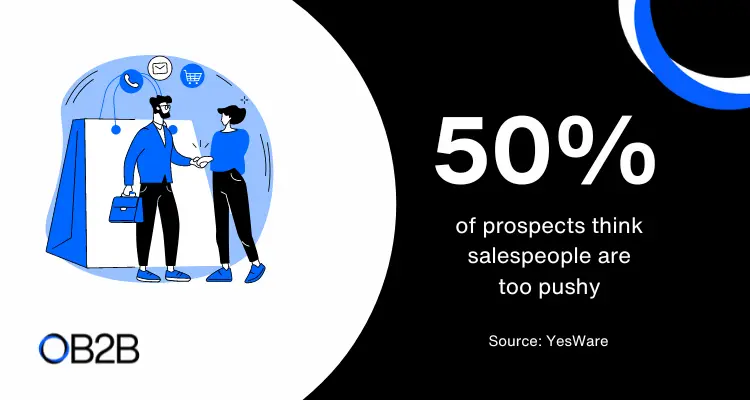
Telemarketing agency’s scope of work
As said before, hiring a telemarketing agency can benefit some businesses. However, this depends on the goals that company wants to achieve as well as a type of business it is. For example, B2C companies will find telemarketing agency’s assistance helpful, while B2B businesses might be better off seeking specialized alternatives.
Let’s have a look at a telemarketing agency’s scope of work.
Selling a product
That first image that pops into your head when a telemarketing is mentioned is true – telemarketing agencies are usually hired to make sales on behalf of the company that contracted them. However, a sale is rarely achieved on the first call. Velocify’s research states that an ideal number of calls to ensure a sale is six.
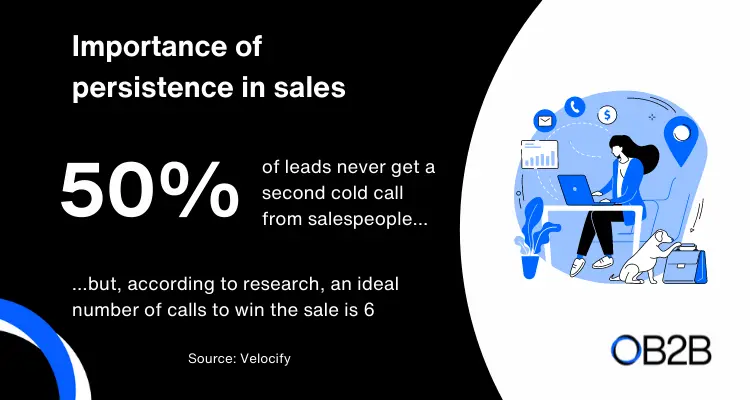
Generating leads
A telemarketing agency can also be contracted to help in generating leads to go further in the sales funnel. However, nowadays there is plenty of marketing techniques that allow you to capture a bigger audience and generate more leads, for example with content marketing, social media and other.
Collecting consumer data
Similar to previous point, telemarketing was a great channel to collect consumer data before the age of Internet. Now it’s much easier to get the info about your consumer’s profile and preferences with the help of social media and other solutions.
👇🏻 However, you can still collect data from a large group of customers that are not online. This most often includes older age groups.
Customer service
Maintaining contact with customers, helping get former customers back and providing help to customers that need it is also something that a telemarketing agency can do. Customer service work is usually given to call centers though.
How can a telemarketing agency contribute to your business goals
The way we do sales has changed. In this Hubspot research, 57% of respondents agreed that prospects are nowadays less dependent on salespeople during their decision making progress. However, 41% of salespeople still say that the phone is the most effective sales tool.
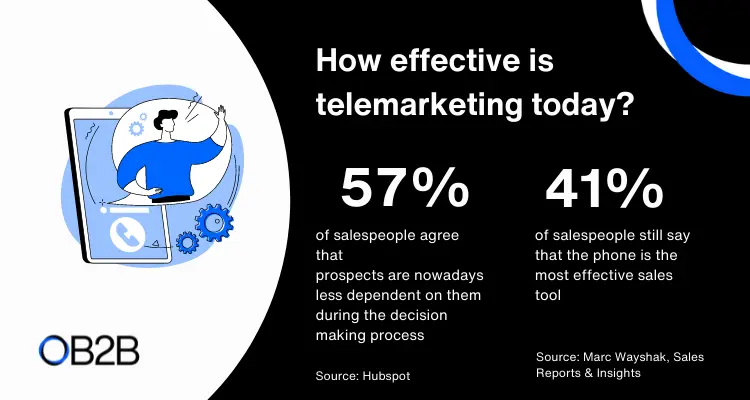
These are the ways in which a telemarketing agency can contribute to your company.
Boost in sales
Your in-house sales team might be overworked, tired or lacks a bit of motivation. By hiring a telemarketing agency, you can get a professional team of telemarketers dedicated to your sales goals. Therefore, you can achieve a boost in your sales or pre-sales processes since telemarketing agencies can deliver results fairly quickly and efficiently.
Result-oriented team
For many reasons, your own sales’ team focus could be dispersed. One of most frequently mentioned benefits of hiring a telemarketing agency is that they are result oriented. This is especially true if they base their pricing on results or sales made.
👇🏻 However, there are both advantages and disadvantages to pay-per-performance pricing when dealing with telemarketing agencies. Read about different pricing models of outbound call centers and how they can impact your business.
Skilled callers
There’s no other way about it – telemarketers don’t survive long in their line of business if they are not skilled callers. Salespeople working in telemarketing agencies are trained on how to recognize the right buyer persona and how to maximize their chances for a sale. After all, many of them work on commission and their own income depends on how well they perform!
For example, research has shown that on average, salespeople perform 94 activities per day, including calls, emails, voicemail and more. Imagine how much motivation and skill it takes to build that kind of stamina!
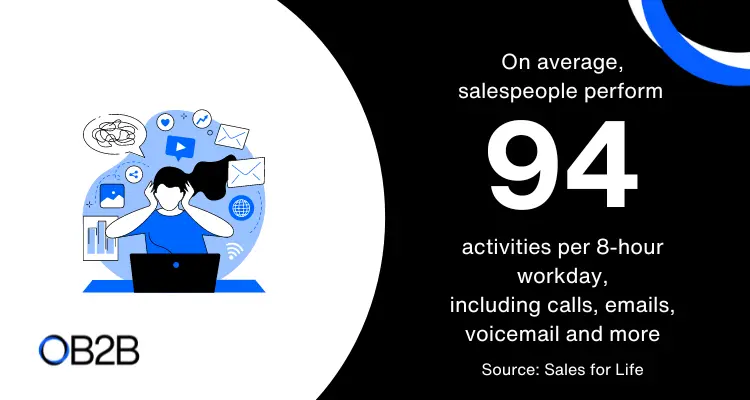
Flexibility
One thing is sure – you can turn the activity of an outsourced telemarketing agency on and off as you see fit according to your current sales achievements or other factors. This is especially beneficial if your product sales depend on key seasons or events. Furthermore, this can be beneficial when there is a holdup in manufacturing or other unpredictable events.
In any case, not having full-time staff on payroll but being able to turn sales activity on and off when needed is one of biggest benefits when dealing with a telemarketing agency.
Managing sales pipeline
Even if you have an in-house sales team, telemarketing agency’s own sales team can fill in the gaps. Your team might be neglecting some groundwork because of renewals or other major opportunities. By hiring a telemarketing agency, your sales team could finally keep up with their own work, and the sales pipeline can be cleared from the clutter.
Business development agency: an alternative to telemarketing agency
Now that you know how a telemarketing agency works, you might realize it is not suited for your business needs after all. Maybe you are looking for a more thorough partner and want to explore other channels than telephone.
That is why if you are in B2B business, you should consider hiring a business development agency. As you probably know, B2B sales has its own specific processes and logic.
👇🏻 Furthermore, some people might be more familiar with a telemarketing agency’s scope of work and unaware of other options. In the next section, you will find out what are the biggest differences between telemarketing agencies and business development agencies.
10 Biggest differences between a telemarketing agency and a business development agency
As you will find, telemarketing agencies and business development agencies have several things in common. For start, they are both hired by companies to assist them with sales. Moreover, they both employ dedicated teams that perform calls to manage sales pipeline.
Although they might seem similar to an outsider, telemarketing agencies and business development agencies actually differ in many ways. Let’s see how.
1. B2C vs B2B
While telemarketing agencies are more suited to B2C businesses, business development companies are more often used in B2B sales. Telemarketing agency’s scope of work includes direct sales over phone. On the other hand, it takes longer to develop leads in B2B sales, so business development representatives rarely make direct sales.
2. Single channel vs multi-channel
As the name says, telemarketing agency deals with sales exclusively over phone. On the other hand, business development agencies often use multi-channel approach during sales process. This includes contacting prospects over phone, email, and on social media channels such as LinkedIn or Xing.
Multi-channel approach to sales is incredibly important. Recent LinkedIn’s research has shown that 40% of business development representatives had closed two to five deals directly through social selling.
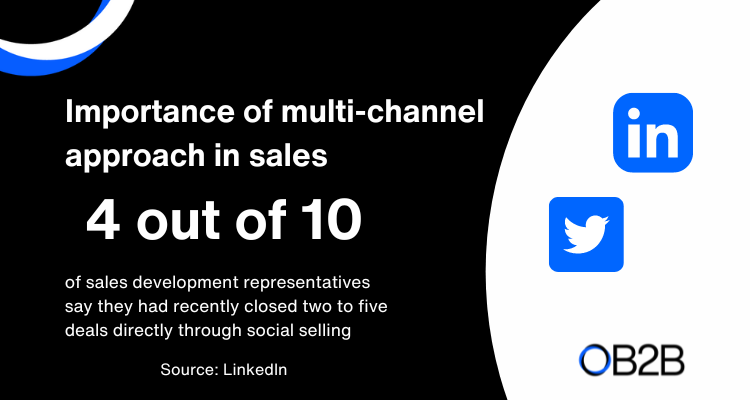
3. Telemarketers vs business development representatives
Agents in a telemarketing agency can be skilled callers and salesmen. However, in B2B sales you don’t expect to make sales on the first call. Business development representatives are highly trained in B2B sales and are aware of the nurturing process it takes to bring a prospect into the next stage of sales process.
4. Short term goals vs long term goals
As harsh as it seems, a telemarketing agency’s team that works for profit might be focused on short term goal of making a direct sale and getting their commission. However, B2B sales take longer.
Long term goals that business development agency’s team focuses on are building brand awareness and creating meaningful relationships even with prospects that are not currently a match for the sale. Of course, business development representatives’ main goal will be to schedule the next call or meeting with the prospect.
5. Sales vs. nurture of leads
As mentioned earlier, half of prospects believe that salespeople are too pushy – and business development agencies are aware of this. This is why the training their business development representatives receive focuses on listening and developing relationships with prospects that can be built upon in later stages of sales process.
👇🏻 On the other hand, telemarketing agents’ goal is primarily to make a sale, and as quick as possible, which is why this approach is more suited to high-volume B2C sales.
6. Brand awareness
Considering previous points about long term goals and nurture of leads, you probably understand how poorly it would reflect on a brand if their salespeople gave their prospects a negative first impression. After all, presenting a brand consistently across all platforms can increase revenue by up to 23%.
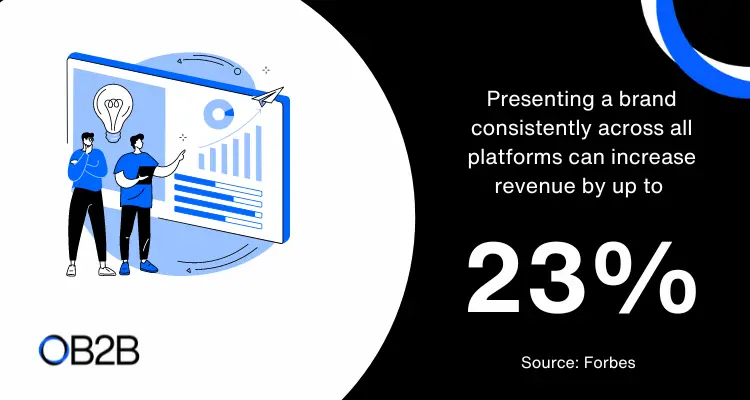
B2B companies are well aware of how important it is to keep good relationships even with prospects that are not buying at the moment. For example, leads that business development representatives talk to are often professionals in a certain line of business and can refer other, better suited prospects them.
Moreover, the timing just might be bad for a purchase to take place because certain company just renewed their deal with a previous vendor. However, maintaining a good relationship with a currently unsuccessful lead may turn into a successful sale next year when their contract expires.
7. Data building
Agents in a telemarketing agency perform many calls in a day and can prove to be a very cost-effective resource for some companies. On the other hand, business development representatives in B2B business development agencies can also help you create a better image of your buyer persona.
We are not talking about collecting consumer data here. Business development representatives usually already have a lot of data on the prospects they are contacting. Instead, business development representatives will find out some specifics to optimize your sales processes, like which channel works the best for you, what are your product’s advantages over its competitors’, and more.
8. Multi-project teams vs single focus teams
In a telemarketing agency, agents often work on multiple projects or switch between them. In a business development agency, business development representatives are working on one or maximum two projects at the time. This is important because the business development representatives’ focus ensures higher quality of the sales process and its outcome.
9. Sales training and guidance
Although both salespeople in telemarketing agencies and business development agencies receive training and education, it differs in quality and objectives. Business development representatives in agencies are often guided by their mentors or project managers that ensure they are informed about the product and company they represent in every call.
👇🏻 It is incredibly important for salespeople to seem trustworthy and knowledgeable, and this is what sales training often teaches. The goal is to ultimately provide value to your prospects in the early stages of buying process.
10. Pricing
Telemarketing agency might seem like a cheaper choice at the beginning, since it often bases its pricing on performance or sales it makes. However, pay per performance model might turn out to be counterproductive for your business.
Why? Because if you want high-quality sales, nurture of prospects and maintenance of your brand image, you know it takes more time. When salespeople are motivated by performance, they will rarely leave room for these long-term goals of B2B sales. Therefore, business development agencies often advocate an hourly pricing model.
